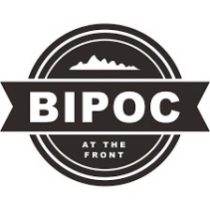Does Duolingo Actually Work?
Hi! My name is Jenna, I am a senior here at NDA, and I am a linguist! I began my language learning journey with Spanish and have since become proficient in French and have just begun my study of Mandarin Chinese this year! I take AP French and Mandarin I currently, but because I finished the Spanish program last year, I keep up with it outside of school through television shows, radio talk shows, and reading anything I can get my hands on. I understand some of spoken and written Italian, and can grasp a good chuck of written Portuguese as well.
I do want to place a disclaimer before I continue: I am not fluent in any language I speak. A lot of people ask me if I am fluent and it is such a hard answer because there is part of me that knows that I can hold conversations in both Spanish and French but then there is the other part of me that knows that I still can’t watch movies without subtitles and can’t understand 100% of those radio shows I listen to all the time.
To be honest, nobody is ever truly, one hundred percent fluent in any language. I am still correcting my English grammar after seventeen years and I still take vocabulary quizzes in English class to expand my word bank. To me, that is the beauty of language learning: it never ends. There is always a word you’ve never heard of, a grammar rule you could review, or a cultural element that you’ve never discovered. The learning never ends with languages!
Throughout these past three years, I have come across many books about how to learn a language, what languages are the “best” to learn, and a plethora of books to help improve your grammar, vocabulary, or conversational fluency. You name it, everything from Rosetta Stone to Practice Makes Perfect to Babble to YouTube channels, I’ve probably seen at Barnes and Nobles or have researched into it. But one program that has continued to stick out to me is Duolingo, a COMPLETELY FREE language learning software that has 150 million users studying a language for personal enjoyment, travel, or work. Many teachers are even incorporating it into their curriculum now, and Duolingo even has programs for speakers of more than twenty five languages!
I have dabbled around the site over the years, and from my research, Duolingo claims to help you learn a language in a fun, interactive, and personalized way. Their manifesto on the website states, “Our ultimate goal is to give everyone access to a private tutor experience through technology.” I have played around with four of the languages offered for English speakers: Spanish, French, Portuguese, and Italian. Although I’ve started the programs and have jumped levels here and there, I have never started from the very beginning of knowing nothing, so I wanted to try it out for myself to see if Duolingo actually does what it claims to do. I wanted to see if I could learn a new language, one to which I have never had any exposure prior to beginning the Duolingo. So, I am performing a personal study on Duolingo. For the next three months, I will be putting Duolingo to the ultimate test to see if it actually works.
So, how will I do it? I began the process by looking at the list of twenty one possible choices and crossed off the ones that I had had exposure to and some that I just wasn’t really interested in trying out. I wanted something strange, something new, something that isn’t taught at most schools. I was left with a list of five languages that were interesting to me: Dutch, Russian, Norwegian, Swedish, and Danish. To be fair, I plugged the list into a random generator and I came out with Dutch! I was really excited when I saw the result! I don’t really know why though because I have no idea what the language looks like, sounds like, if it used a different alphabet, or uses lots of different accents. To say the least, I have no idea what I am getting myself into.
The task is as follows: For the next three months, I will study Dutch for ten minutes a day using only Duolingo. I am not allowed to take any notes whatsoever, use outside sources of any kind to enhance my learning, study for more than ten minutes a day, skip days, or spend extra time reviewing what I had previously learned. If I wish to practice what I’ve learned for the ten minutes I am allotted, so be it, but I cannot spend more than ten minutes a day. Every month, I will report back with my progress in the program and my thoughts on the language. At the end of the three months, I will measure my progress using the progress quiz that Duolingo provides, which measures your percentage of fluency. I did not take this exam prior as I have no background in Dutch that could be helpful.
So, follow me along on this journey as I answer the questions, “Does Duolingo actually work?”










